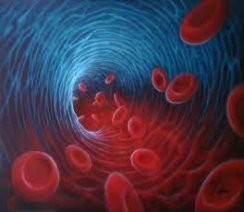Ultraviolet Blood Irradiation (UBI)
How does it work?
 In the process, a small amount of blood is removed and then the blood is run through ultraviolet lights. What happens is the smaller bacterial and viral cells are targeted and absorb five (5) times as much photonic energy as their healthy counterparts. The healthy cells remain intact while the disease cells are killed and become antigenic. The microbes in your bloodstream are rapidly destroyed. This is called “induced secondary immune reactivation.”
In the process, a small amount of blood is removed and then the blood is run through ultraviolet lights. What happens is the smaller bacterial and viral cells are targeted and absorb five (5) times as much photonic energy as their healthy counterparts. The healthy cells remain intact while the disease cells are killed and become antigenic. The microbes in your bloodstream are rapidly destroyed. This is called “induced secondary immune reactivation.”
Enhancing the body’s ability to produce antibodies, allows the body’s natural immune system to burst into action against even the most stubborn (antibiotic resistant) bacteria or virus.
Then the body works with a new supercharged immune response, greater oxygenation and a balancing of the system.
What does it do?
- Kills bacteria and viruses in the blood and super charges the immune system
- Improves circulation
- Improves oxygenation of tissues
- Balancing effect (homeostasis)
- Helps anti-inflammatory effects
- Has powerful anti-infection properties
- Reduces tissue pain
What is the procedure for UBI?
Ultraviolet Blood Irradiation, involves inserting a small needle (similar to giving blood) into a vein in the forearm. A small amount of blood is removed. An anticoagulant is added to prevent blood clot formation. The blood passes through a flat crystal cuvette, is irradiated with a medical ultraviolet device and treated with ultraviolet light in a closed, airtight, sterile circuit and returned to the blood stream. The entire procedure takes about one hour.
Does it really treat all of these ailments?
YES! Numerous studies and our own personal experience have shown the phenomenal effects of this treatment. It has been used to treat over 1 million patients over the last 70 years with significant results and little or no side effects.
What have others said?
Dr. Henry Barrett on 110 cases of UBI:
- No detrimental reactions from UBI
- Improvement is frequently immediate
- Increase in peripheral circulation
- Increase in oxygen of the blood
- Inactivation of toxins in the blood
